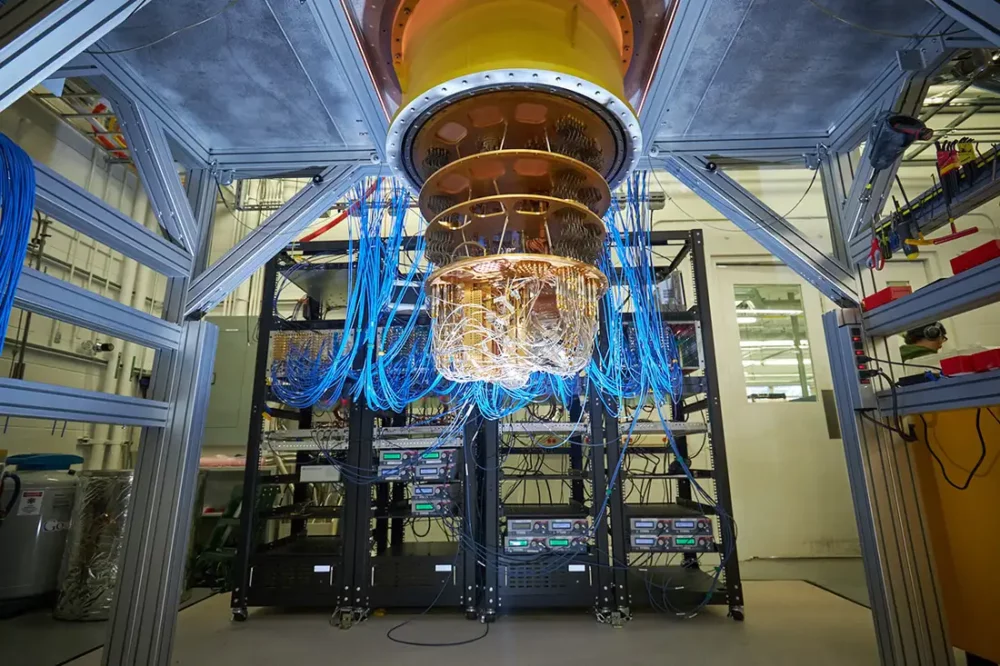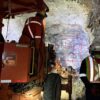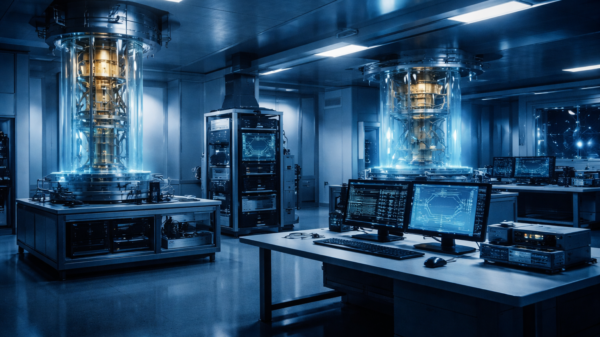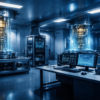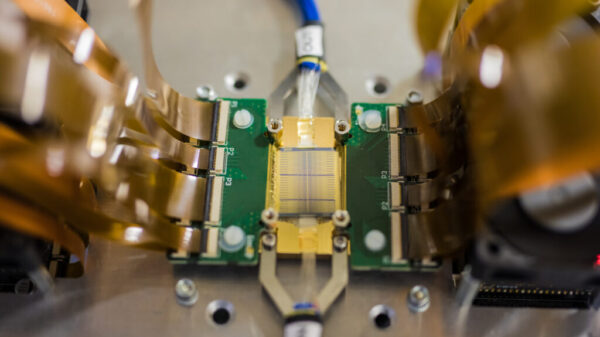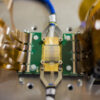D-Wave Quantum Inc. (NYSE: QBTS) and aerospace tech company, Davidson Technologies Inc, have joined forces to put together a D-Wave Advantage2 annealing quantum computer at Davidson’s headquarters in Huntsville, Alabama.
The assembly is complete and installation is almost complete, with only final calibration and readiness testing left. The company announced on Wednesday that the partnership positions Alabama as a key contributor to the developing quantum infrastructure in the United States.
The state will host its first on-premises annealing quantum computer with the installation of the Advantage2 system. Furthermore, this will open new pathways for developing quantum optimization applications that address mission-critical challenges, including those in national defense. A secure facility designed for running sensitive quantum computing applications will eventually house the system.
Additionally, Davidson will commemorate the milestone with a private VIP ribbon-cutting event on April 23 at its headquarters. State and federal dignitaries will also join executives from both companies for an exclusive unveiling.
“Davidson has a legacy of applying advanced technologies to support our nation’s defense,” said Alan Baratz, CEO of D-Wave.
“The installation of an Advantage2 system will enable Davidson to explore and develop real-world quantum applications—particularly in optimization—for some of the U.S. government’s most complex problems and then deploy those applications in a secure environment.”
This installation follows a multi-year agreement and technology collaboration between the two companies. Davidson is investing in research and talent development to better understand and deploy hybrid quantum-classical solutions.
These solutions target use cases like multi-domain operational optimization, space asset management, and autonomous system coordination.
Read more: D-Wave Quantum and Japanese pharma use quantum computing in drug discovery process
Read more: Quantum computing might be around the corner: A Mugglehead roundup
Quantum computing will represent significant national defense issues
Federal lawmakers representing Alabama voiced strong support for the milestone. They emphasized its role in strengthening national defense innovation and advancing the state’s leadership in technology.
U.S. Senator Tommy Tuberville, a Republican senator for Alabama, said the arrival of a leading quantum computing system at Davidson’s Huntsville campus positions Alabama at the lead of quantum application development. Tuberville said space operations, missile defense, and logistics are examples where this technology could improve national security.
“Hosting the forthcoming Advantage2 system onsite reinforces Davidson’s commitment to national security innovation,” said Dale Moore, president and CEO of Davidson.
“This milestone is more than symbolic—we believe it represents a step-change in how quantum technology can be deployed, evaluated, and applied to defense missions that require precision, scale, and speed.”
According to the U.S. National Security Agency (NSA), most modern encryption systems—including RSA and elliptic curve cryptography—depend on mathematical problems that quantum computers could eventually solve using algorithms. If adversaries build large scale quantum systems, they could decrypt sensitive military, diplomatic, and financial communications, the NSA warns.
Furthermore, the RAND Corporation has echoed these concerns. Quantum technology could also threaten secure command-and-control systems, satellite operations, and other critical infrastructure by allowing more sophisticated cyberattacks. RAND further suggests that such capabilities could shift the strategic balance in cyberspace.
Meanwhile, intelligence agencies have raised alarms about a “harvest now, decrypt later” approach. Originally detailed in MIT Technology Review, this is where state actors collect encrypted data today in hopes of breaking it once quantum capabilities mature.
.
Follow Joseph Morton on Twitter
joseph@mugglehead.com

